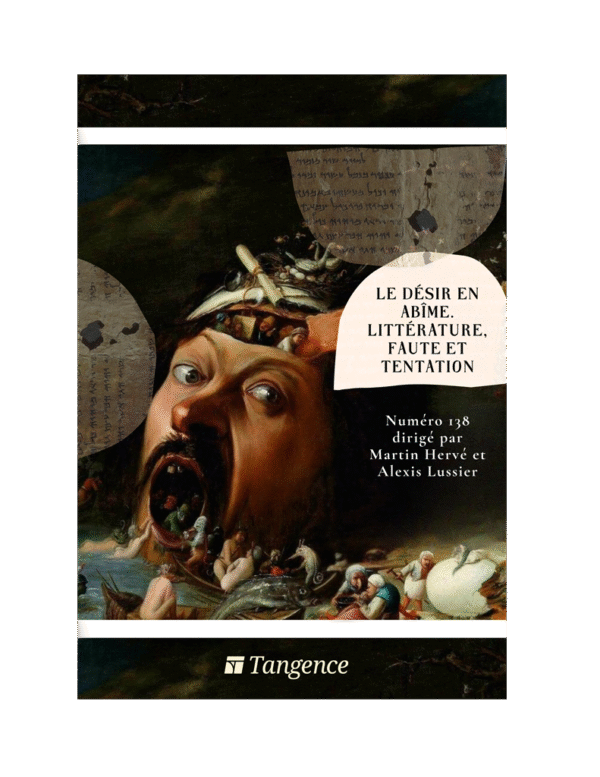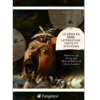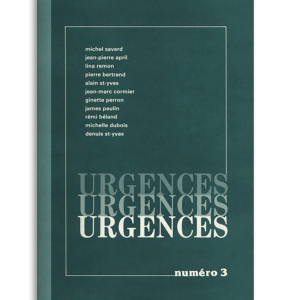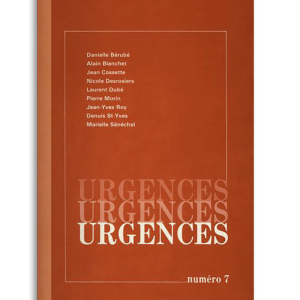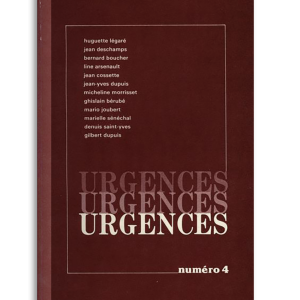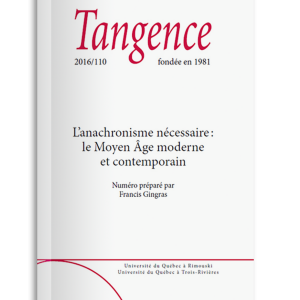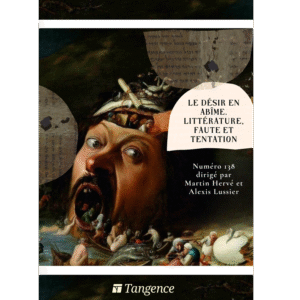The testing of desire. Figures of temptation in Bible translations in the Middle Ages
Francis Gingras
In the early twelfth century, translations of liturgical texts and biblical paraphrases began to make an appearance, quickly becoming full translations whose many versions we have today, often preserved in more than one manuscript. The exploration of translation choices and their corresponding interpretations, based on this set of French-language translations produced between the twelfth and fourteenth centuries, helps shed particular light on how translation is considered in our linguistic universe while giving it a certain historical depth. Thus, the oldest French Bible translations hark back to the idea that temptation first involves a father testing his sons. Reversible in the Old Testament, it becomes, more specifically, the work of Satan, the Adversary, in the New. In all cases, temptation is associated with articulation of the Law. From then on, desire is put to the test not so much by seductive females, but by a single Tempter, directly linked to the name of the Father, with whom the Christian pleads each day to shield him from temptation.
On a misleading absence : Tempting and temptation in the works of Pascal
Pierre Lyraud
The language of temptation, in Pascal’s work, is conspicuous for its quasi-absence. Should we therefore conclude in the absence of the thing itself ? If, for Pascal, the word temptation is doubtless insufficient when speaking about the life of the sinner, the rarity of the word goes in fact hand in hand with a rather specific definition that the article intends to clarify. The present article explores this issue by examining first, the alluring strength of an infinite temptation ; second, the test that this constitutes ; and finally, the ignorance of God’s withdrawal that it reveals. Thus, more than the battle against temptation, what counts for Pascal is the antithetical dynamism of sin and grace, the unfathomable darkness of evil and, above all, its opposition to the sincere search for God. All of this describes, in part of the Pensées, a project far more consoling and luminous than that handed down in tradition.
“Taking delight in the temptation that torments them.” A longing for the abyss, or the temptation of the Fall in libertine fiction
Marine Ganofsky
This article discusses the representation of erotic temptation in the libertine narratives of the eighteenth century. In these, we have authors who use the motif of temptation to explore their characters’ psyche while questioning the sanctions that Ancien Régime society imposed on sexuality—notably that of women. Our aim is to show that libertine temptations crystallize the internalization of Evil during the Enlightenment era, when temptation is in fact depicted as originating from a deep, innermost desire rather than an evil outside force. In this testing of his will, the individual discovers he is not the passive plaything of either demons or his own nature. Gifted with free will, he is characterized by his freedom to choose between good and evil, the pleasurable and the reasonable. This is why tempted characters view the Fall itself, despite its dangers, as an experience of freedom, and why temptation, for its part, is presented as a delicious thrill.
Reasoned thought and fantastical thought from Rousseau to Freud
Alexis Lussier
This article first identifies the use of the word “novel” in Rousseau’s Confessions. It then compares the meaning of the “novel” in the memoirs of J. W. von Goethe (Poetry and Truth) on one hand, and the works of Freud on the other, at the very moment the latter was involved with the case of the Rat Man, considered, even today, a paradigmatic case for understanding obsessional neurosis. These different overlaps reveal that Freud’s use of the word “novel” fully compares to its use by Rousseau and Goethe ; this, even as the conception of a metanovel, the novel one creates for oneself, blurs the classical distinction between reasoned thought and fantastical thought. Henceforth, from Rousseau to Freud, from Goethe to the Rat Man, reasoned thought and fantastical thought alternate within a space that can only be termed a subjective interior space, where the drama around conscience, obsession with sin, and the attraction of temptation plays out. On this point, the present article proposes to examine a new insight by considering Freud’s text on the Rat Man as a key reference when discussing the relationships between psychoanalysis and literature.
Uneasy reading : Homosexuality according to Marcel Jouhandeau. Between existential strategy and aesthetic experience
Martin Hervé
At the turn of the 19th and 20th centuries, the emergence of a homosexual literature provoked scandals and denunciations that reactivated the traditional condemnation of bad books along with warnings about the evil influence of literature. Some writers, like Marcel Jouhandeau, however, eagerly embraced the stereotype of the “inverted” and tempting author, agent of inversion, so as to reinvent him in alternative, eminently aesthetic, ways. Homosexual and Catholic, a self-proclaimed moralist of vice seeking a paradoxical holiness in hell, Jouhandeau was among those writers who enlist literature to invent themselves by themselves. It was from the very place of writing that he built a rule of life specific to, and justifying, himself. Between 1920 and 1940, his texts elevated homosexuality to a strategy of existential justification, where “evil” is never forsaken and temptation is valued for itself. Above all, Jouhandeau uses this strategy as an eminently literary experience of subversion, its effect sustained only by a false, distorted operation of language. It is an experience where the reader’s own desire takes hold of him and leads him astray.
Temptation in the pronominal scene. Reflections on La fiancée juive by Hélène Cixous
Julie Gaillard
Subtitled De la tentation [On temptation], Hélène Cixous’ La fiancée juive [The Jewish fiançée] evokes a passionate affair through a rewriting of the Canticle of Canticles. Here, temptation is not understood in a moral light, but characterizes, rather, the state following the opening to temporality after the lovers’ union, eternal, divine, comes to an end. Outside this atemporal pleasure engaging the experience of desubjectification, each repercussion in time and space opens the pronominal scene that widens the distance of the “I” to the “you.” Using an analysis of the disruptions inflicted on the pronominal structure by the work of temptation, this article aims to explore the related literary, psychoanalytical and feminist issues, showing how Hélène Cixous, in a feminist subversion of the theme of the Fall which separates temptation and guilt, seeks in her writing to invent a love based no longer on possession of the subject, but on an opening to the other.

